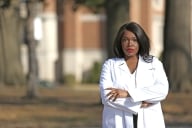You have /5 articles left.
Sign up for a free account or log in.
Grinnell College is in the midst of a complicated and difficult debate about undergraduate student unionization, and at its core is a question about the very reason why institutions of higher education, like Grinnell, exist. Regardless of whether the students choose to pursue an expansion of our college’s student union, as leaders of the college, the board and I must decide what type of college Grinnell is as our community grapples with this complex issue about which reasonable, fair-minded people can and do disagree.
The headline from a recent Inside Higher Ed article summarizes the question before us: “An (Anti-Union) Liberal College?” That query has two important parts. The first is whether the college is anti-union. Based on evidence, that clearly is not the case. For almost half a century, Grinnell has maintained a remarkably cooperative and highly valued relationship with facilities workers represented by the Teamsters Union, with just one very brief strike in 1974. (Editor's Note: The previous sentence has been updated to correct an error.) Furthermore, just two years ago, the college did not oppose the creation of the first union in the country of undergraduate students representing dining hall workers.
That said, we are not unquestioningly pro-union, either. We believe that an expanded union representing nearly all of our undergraduate students could limit educational and professional development opportunities on our campus and fundamentally alter the vital relationship between students and faculty members.
The suggestion that we must be seen as “pro-union” in order to be true to our values reflects a very different understanding of Grinnell’s mission. We exist for the preservation, transmission and creation of knowledge, and with this mission comes an obligation to provide room to freely explore ideas -- even and perhaps especially unpopular ones. (And remember: unions were once a very unpopular idea in many regions of America.) When we begin to take positions on matters unrelated to our mission and make decisions based on a political litmus test, we hurt the very core of our mission.
The second part of that headline is equally important to dissect: are we a “liberal” college, and if so, who decides what is “liberal” enough? It is true that many of our most accomplished graduates, from Harry Hopkins on, have become leaders of progressive movements in this country. But the fact is that we are not now and never have been a political institution. That, too, is not our mission. When we identify as a “liberal” or a “conservative” college or a “pro-union” or “anti-union” college, we significantly narrow that precious and increasingly rare space in which our faculty members and students can freely explore ideas and, in doing so, we constrain our ability to meet our mission.
Many people who have written us have asked if our position violates our historical position as an institution deeply committed to social justice. We are proud of our history and are devoted to maintaining that tradition. But we make our impact on social justice in two primary ways. First, we educate our students to explore all sides of issues with strong skills of analysis and reason, and to understand the array of complexities of what it means to be human. Grinnell’s distinctive approach to education, in which individually advised learning takes place both in and out of the classroom, is a key part of this.
We then send our students out into the world to make it better, but we do not prescribe for them what is better or how they will make it better. We leave that choice up to them with the confidence that they each have the tools to decide for themselves.
Second, we do everything we can to assure that access to this transformative education is not restricted only to those who have the funds to pay for it. Both elements align with our ethos and mission. They are what we see as our primary commitment to social justice: our obligation toward making the world a better place.
The immediate issue of whether Grinnell’s union of dining facility workers will pursue expansion to include all students working for the college is principally a legal one. But as a college, we are focused on the larger issues related to our institutional position and how our broader community understands it in light of our mission. The debate about the specific merits of the student workers union proposal has become one about the soul of a great institution -- its mission and obligations as a community that places open exploration of ideas at the center of its existence. I have every confidence that our community will emerge from this debate stronger than ever.
While the details of the specific discussion at Grinnell may be distinctive, as more and more colleges and universities are called upon to declare sides in the broader deep divide that characterizes our nation, perhaps the time has come for a consensus guideline to help institutions navigate these waters. The risk of long-term damage to the missions of our community of institutions from full engagement in the nation’s current political and cultural wars is great.








